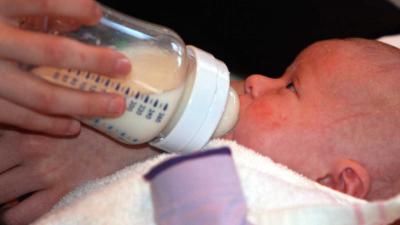A national vaccination strategy is required
“It is therefore expected that a national vaccination strategy, which leads to herd immunity, will be essential to be able to provide the necessary protection for children with medical risks,” UMC Utrecht reported on Tuesday.
Research in healthy children does not always account for
Specific groups, such as infants at risk of developing serious intestinal infections due to rotavirus infection, such as premature infants or those born with congenital malformations, are usually excluded from large-scale clinical studies. However, research in healthy children is not always representative of all children. It is therefore important to check whether the rotavirus vaccine also protects children with risk factors from vomiting and diarrhea caused by rotavirus.
River
It is also important to verify that a vaccination strategy, directed towards the target group or general, is the best option. Vien van Dongen (PhD student at Julius Health Sciences and Primary Care Center, UMC Utrecht) investigated the risk group for infant rotavirus vaccination (RIVAR) to see if rotavirus vaccination was effective in infants with medical risks.
Insufficient protection
After follow-up from birth to 18 months of at-risk children from the 13 Dutch hospitals participating in the RIVAR study, vaccine efficacy was found to be only 30 percent (in 719 children vaccinated). This contrasts with previous studies showing that vaccination was more than 80 percent effective in protecting against serious infections in healthy children.
National Vaccination Program
The vaccine appears to be generally well tolerated by infants in the high-risk group, but the vaccination rate in this population was only 52.3 percent. Therefore, vaccinating only at-risk children does not appear to be the correct strategy to prevent rotavirus infection. Therefore, the Board of Health decided not to introduce rotavirus vaccination for this at-risk group. The most sensible step would be to vaccinate all infants universally through the national immunization programme, especially if the vaccine were to become cheaper.
group immunity
Vin van Dongen explains what it would entail to vaccinate all children: “We know from experience in other countries that herd immunity can be achieved through a national vaccination strategy, which also indirectly protects children with medical risk factors. We believe that universal rotavirus vaccination can prevent a significant proportion of hospitalizations associated with rotavirus and severe acute intestinal infection in children with risk factors as well as in healthy children.
Underdeveloped immune system
And about a possible explanation for the vaccine’s limited effect, she says: “It may be a combination of factors. One of those factors is the immature immune system: in premature babies, the immune response is generally less developed. So they are likely to respond less to this vaccine.”
Average 28 days in hospital
In addition, many of these babies – even if they are not premature – are seriously ill in the first weeks of life. They stay in the hospital for an average of 28 days after birth, with the necessary support for all kinds of vital functions, which can also have a devastating effect on the immune system. The first dose of the rotavirus vaccine should be given early in life, preferably between 6 and 9 weeks after birth.
rotavirus infection
Almost all children under the age of five are infected with rotavirus. It is an infectious disease in which acute inflammation of the stomach and intestines occurs and leads to vomiting, diarrhea and fever. Although most children do not get very sick, tens of thousands of parents visit the doctor each year with their children due to rotavirus infection.
Symptoms of dehydration
Each year in the Netherlands, an average of 3,600 children under the age of five are hospitalized with symptoms of dehydration as a result of rotavirus, many of whom are healthy children as well. Every year in the Netherlands from 5 to 6 children die as a result of infection with rotavirus; These deaths usually occur in children who have a medical risk factor. In its latest advice (June 2021), the Council of Health indicated that rotavirus vaccination should be included in the national immunization program for all infants.

“Total coffee specialist. Hardcore reader. Incurable music scholar. Web guru. Freelance troublemaker. Problem solver. Travel trailblazer.”

:format(jpeg):fill(f8f8f8,true)/s3/static.nrc.nl/bvhw/wp-content/blogs.dir/114/files/2021/11/trujilo-vierkant.png)





More Stories
Pointing out: A nuclear reactor…but in space
“Ask at least one question in return.”
Elbendamers in the Sun: What a Wonderful Little Village